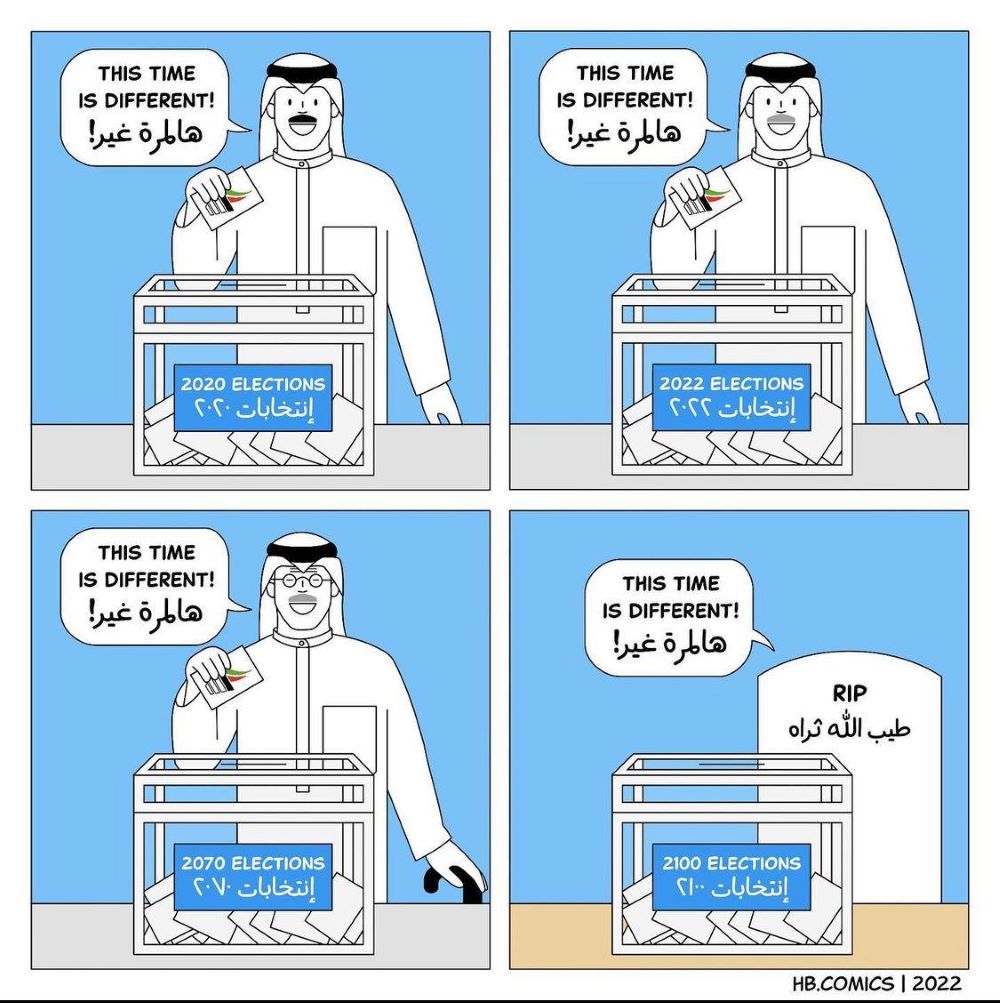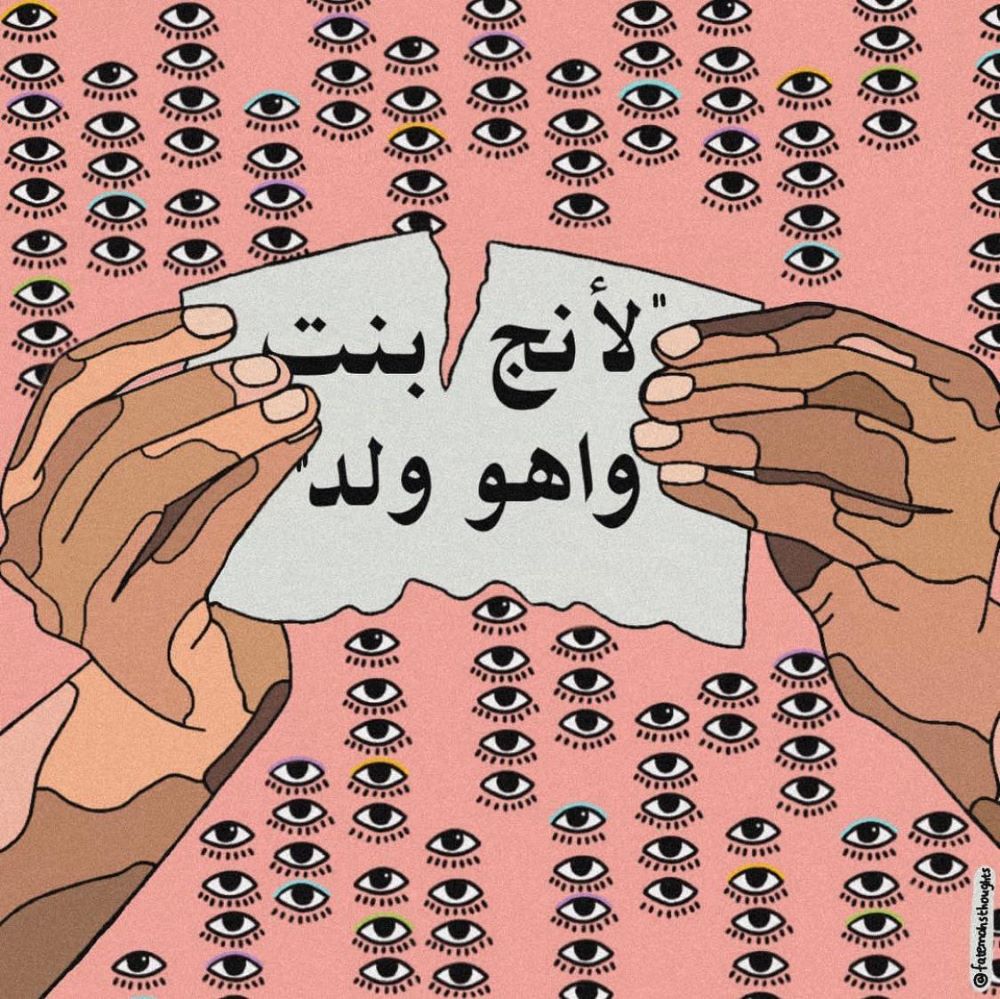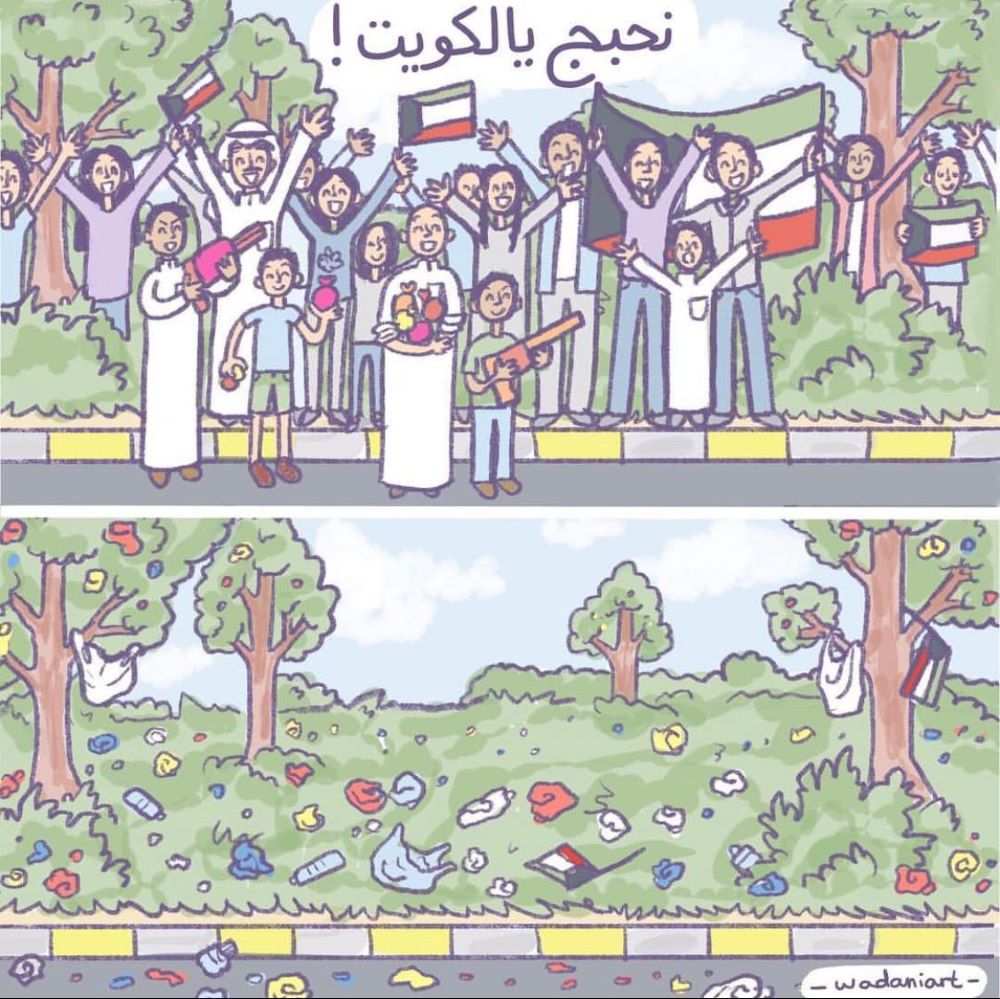By Sara Mahmoud
KUWAIT: Art is a strong tool for starting a conversation — it’s a creative medium that colors a picture, both figuratively and literally. Unlike reading, art doesn’t require a prerequisite of education to be understood. These artistic messages can either have a specific meaning or just a creative release, it can uniquely be decoded by everyone.
Today, local artists use their social media platforms for social and political awareness, they start discussions that are relevant to our day-to-day life. Shahad, an artist uses her burst of creativity through her comics, making experiences come to life in a fun, creatively genuine way. Through her comics and main character ‘Shalala’ she illustrates the mundane, the simple joys, and sometimes the societal frustrations.
As a member of s ociety, Shahad, at times, paints emotions of distress at some of the normalized actions. For example, pollution is a big issue in Kuwait and she uses her art to convey her opinion about the issue. Moreover, she illustrated her take on Kuwait’s post-national day celebration chaos — people littering everywhere, with no moral or social responsibility for their actions. She pointed out their lack of accountability to express her concern for the environment and the lack of awareness shown by these people, “I try not to focus on the negative, but at times, it’s hard not to” she told Kuwait Times.
Fatemah Dashti, an artist uses her platform for female empowerment, mental health awareness, and the trouble of having to fit into the mold set by society. Her take on female experiences had gained her a lot of interest in the country. As a society, women have been conditioned to fit certain expectation in all aspects of their lives. For instance, her piece ‘because you’re a girl and he’s a boy’ sparked a lot of controversy, yet she was just depicting the reality of a society that is more lenient when it comes to men yet judgmental when it’s a woman.
Fatemahs’ art doesn’t just represent herself, it represents every woman struggling with societal expectations and every person dealing with mental challenges making her stories and narrations varied and diverse in nature. According to her, “Just because I’m not going through the same struggles as others, doesn’t mean I’m incapable of understanding them, it feels like my responsibility as a privileged women is to tell these stories”.
Not only that, but in a society that has unrealistic expectations, she celebrates doing things in your own pace, not fitting the mold, and prioritizing mental health. Meanwhile, Hashem Behbehani uses web comics as a way to express his thoughts in a form of a visual diary and at times works on creating art that tackles bigger topics by integrating humor and politics. His use of satire and irony to deliver a message makes the bitterness of the topic easier to swallow.
According to him “satirical art is effective when the audience trusts that the artist has no ill intent but only to raise awareness and spark change”. He believes that setting an honest tone for the sake of positive change is crucial when discussing political issues. For instance, the 2022 election ignited his need to voice his opinions in a burst of creativity that highlights the corrupt system as well as outline the hope the citizens have for change. As a Kuwaiti citizen, he feels the need to acknowledge these issues to create awareness, while also using humor to communicate with the audience. These artists show us that art, at times, shifts opinions more powerfully than words.




